Extreme weather hurts production in the European Union and Australia and creates new markets for Canadian crop
Climate change has created a large new market for Canadian canola for years to come based on comments made by industry officials from Europe and Australia. Luc Ozanne, managing director of Sofiproteol, the financing subsidiary of a major France-based oil and protein producer, said European Union rapeseed production in 2020 is forecast at 17.04 million […] Read moreCrop Management — page 329

Dicamba drift not considered major problem in Canada
A court in the United States recently blocked sales of the herbicide in response to complaints, but the ruling doesn’t apply to Canada
Dicamba drift may be a controversial issue in the United States, but it hasn’t been a significant problem in Manitoba, says a weed expert in the province. In Manitoba, which has more than one million acres of soybeans, the number of cases of dicamba drift has been minimal. “Because we’ve been very proactive and … […] Read more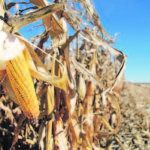
Research confirms corn and soybean’s northward shift
If global warming continues as predicted, the next 50 years could see the best growing conditions for corn and soybeans shift from Iowa and Illinois to Minnesota, the Dakotas and Canada. Researchers at Pennsylvania State University looked at more than three decades of crop-yield data from the U.S. Department of Agriculture’s National Agricultural Statistics Service […] Read more
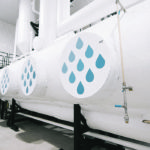
Pig poop provides pure potable H2O
Drinking water that was just extracted from hog slurry may not be your cup of tea but it’s real handy on the hog farm
Politicians and media were photographed drinking freshly processed hog slurry water in an experimental facility. The event was the grand opening of Solugen’s first pig slurry purification plant last fall. VIPs were not enthusiastic about the new beverage product, but most were brave enough to at least try a little sip. They all conceded the […] Read more
Doing it right, doing it right, doing it right
What happens on the farm matters in international markets, so the President of Cereals Canada wants to make sure that growers pay attention to labels. Cam Dahl said producers should follow label instructions on crop protection products and do everything they can to stay ahead of fusarium head blight. “Whether it comes to pesticide residues […] Read more
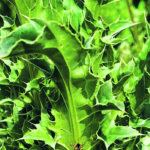
Weed of the Week: nodding thistle
Unlike some of its cousins, such as Canada thistle, nodding thistle nearly always begins from a seed, which grows to the height of a person — one with an agreeable personality because once it gets its purple hairdo, it starts nodding. Each one of those big purple flowers can contain up to 250 seeds, and […] Read more
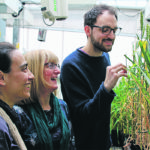
Amino acid swap makes wheat more heat tolerant
Thermostats tell air conditioners to switch on when it’s hot and shut down when it’s cool. Plants have Rubisco activase (Rca) that tells their energy-producing enzyme, Rubisco, to kick in when the sun is shining and stop when leaves are receiving less light. To increase the efficiency of Rca and activate Rubisco faster, researchers at […] Read more
Faster starting and tighter lines for Trimble RTK upgrade
Trimble expanded its CenterPoint RTX Fast subscription service into southern Canada and can now provide users two centimetres of accuracy with less than two minutes of initialization time. Michael Bruno of Trimble said the service takes the benefits of satellite-based services, (no need for additional hardware like a base station), and also provides the accuracy […] Read more

Milk River users face dry summer
The Milk River runs the risk of running dry later this summer, which would eliminate irrigation for 40 southern Alberta water licence holders, change cattle pasture rotation for ranchers, force municipal water restrictions and damage the river’s aquatic ecosystem. No water will be transferred from the St. Mary Basin into the Milk River Basin this […] Read more
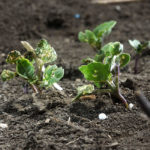
Pandemic could prod gov’t to fix safety nets: researcher
In a rare occurrence, Canadian attention has been drawn to the country’s food system and food security. That could goad governments to fix inadequate safety net system, hopes a school of public policy researcher. “That public attention (during the pandemic) will also help translate to policy action,” said Kerri Holland during a webinar for the […] Read more




